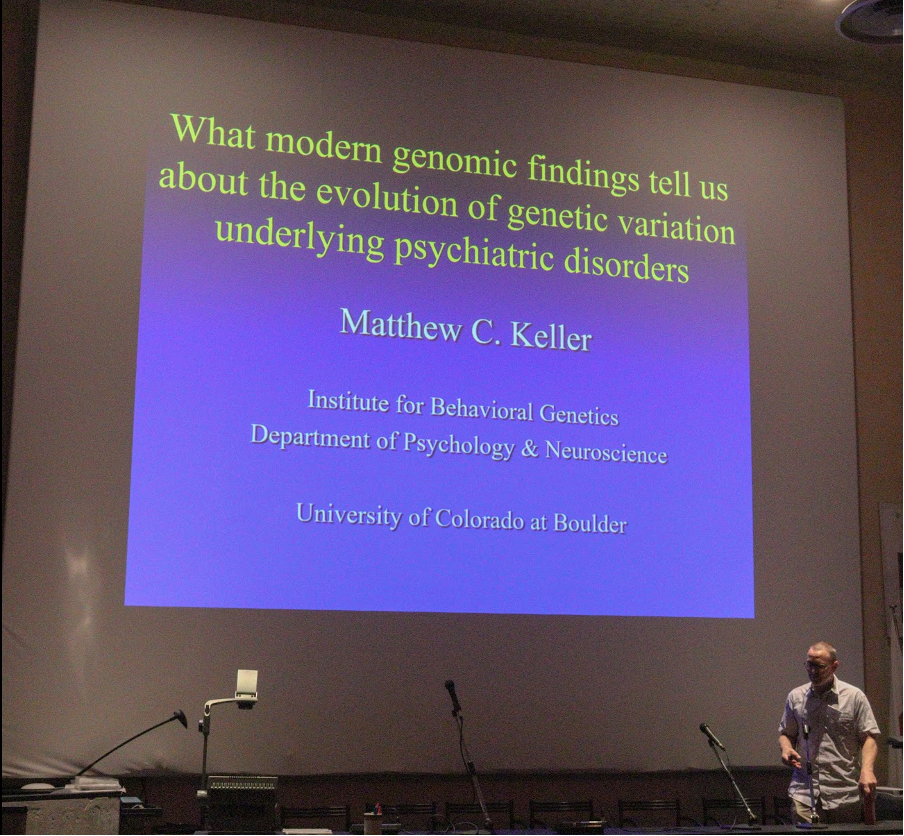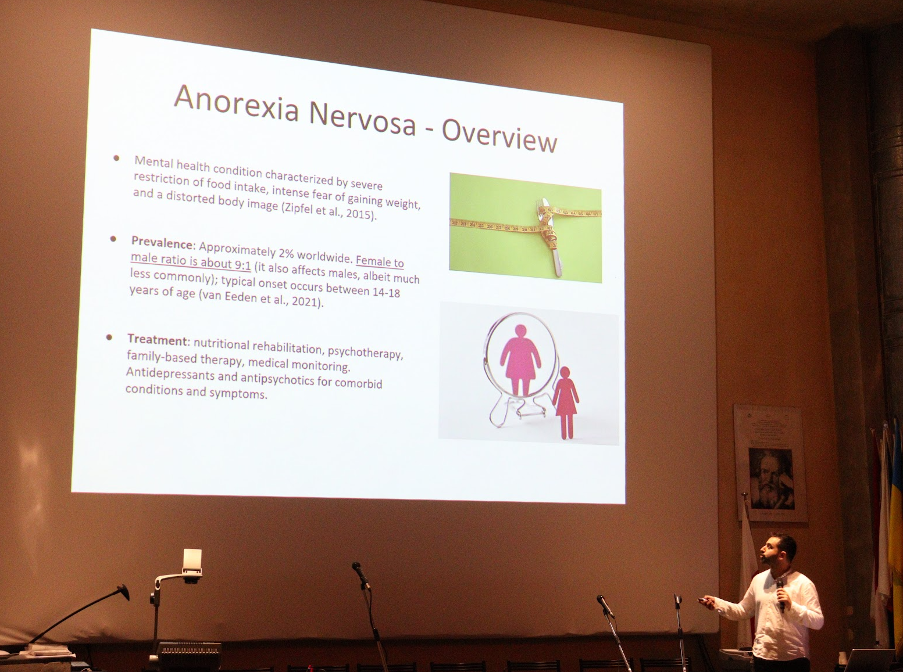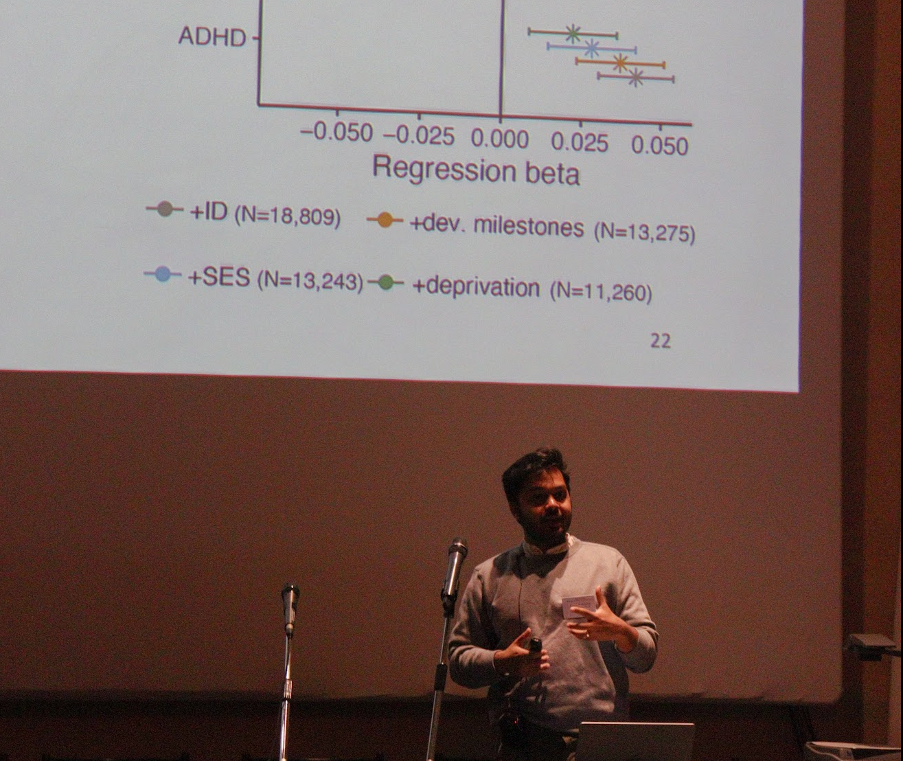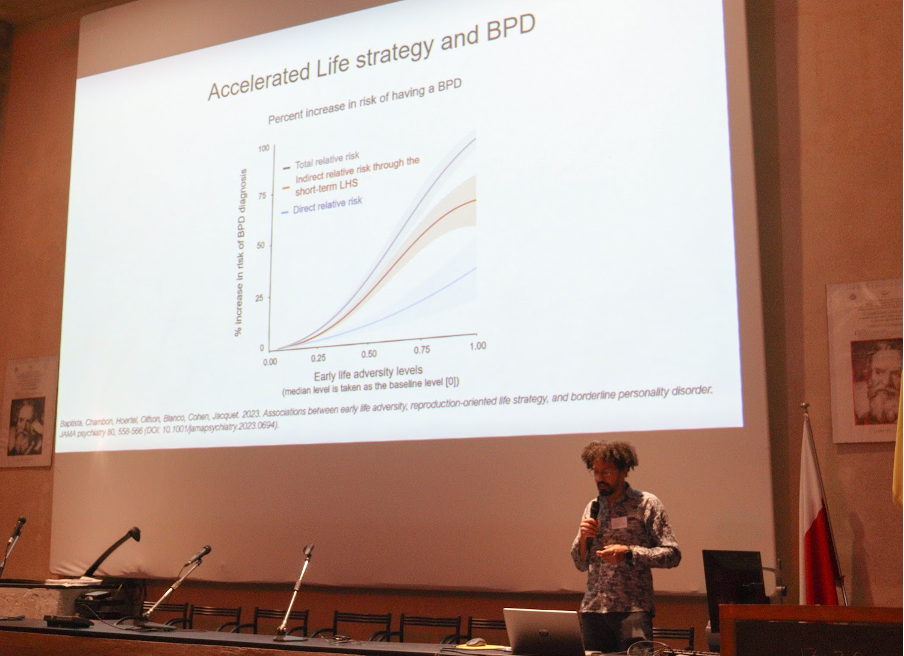Towards a new science of mental disorders: bridging evolution and genetics
Guest article by Dr Adam Hunt on the recent workshop in Erice, Sicily
Dr Adam Hunt has been working on evolutionary psychiatry since 2016, and is soon joining the University of Cambridge as a postdoctoral researcher. He earned his PhD in 2024 from the University of Zurich for his dissertation ‘Evolving Evolutionary Psychiatry and Explaining Neurodiversity’. He is on the executive committee of the Royal College of Psychiatrist's evolutionary psychiatry special interest group and hosts the 'Evolving Psychiatry' podcast. His first non-fiction book, The Specialised Mind, is in development, and will summarise his research for the general audience.
One of the central questions motivating evolutionary psychiatry is a paradox: given that many mental disorders have a heritable component, why has natural selection not removed the responsible genes from the population? There are two major opposing sides in this debate: one side claims that all heritable variation in human personality and psychopathology is caused by harmful mutations which are of too small of an effect to be weeded out – this is the ‘mutation-selection balance’ argument. On the other side are the adaptationists, who argue that the heritable variation has some adaptive benefit, in some contexts and individuals.
Last week, myself (@realadamhunt) and Marco Del Giudice, with the helpful assistance of @emanuele_espo98 hosted a workshop in Erice, Sicily: ‘Towards a new science of mental disorders: bridging evolution and genetics’ to bring together the leading thinkers on this question. It exceeded our expectations! I’ll run through the presentations…
Matt Keller – author of the pivotal 2006 ‘Paradox of common, harmful, heritable mental disorders’ paper, kicked off. He still holds that genetic variation of personality and psychopathological traits is likely caused by many, very slightly harmful mutations (this is perhaps the major scientific division between attendees: all mutation, or some adaptation?)
He was followed by @AnaisThijssen, who has been using UK biobank data to study mental disorder-related genetics and finding mixed positive and negative associations with fitness-related traits – its possible that this indicates some ‘antagonistic pleiotropy’
Then was @RenatoPolimanti, who has published various papers finding positive and negative selection on autism and schizophrenia-related alleles in the past – some of these don’t replicate! A warning that science is complicated and methods are limited…
Then we had a word from the evolutionary psychiatry side: @RiadhAbed1 talked through some of the field’s basic principles, and specifically considered why eating disorders may arise in modern environments
Following that, @GiuseppePierpa3 presented research on the genetics of Anorexia Nervosa, looking at the conservation of related alleles across species.
(Coffee breaks in Erice can be spectacular – what a balcony to lean on and discuss the sessions! Here @dr_appieand @FranckRamus were enjoying).
Then we had Varun Warrier, who presented his work on subtyping autism with genetics, which finds that autism can be clustered by age of onset, often showing sex differences and different symptoms/characteristics related to those clusters
Bence Farkas presented work from their lab on borderline personality disorder, seeing how it decomposes into various traits related to a ‘fast life history’ strategy, and how the symptoms make sense reacting to certain environments
Then it was Marco defending the adaptationist perspective – pointing out that many of the ‘disorders’ we identify could be harmful to the individual whilst still being adaptive at the population level, and advocating for better subtyping of conditions with evolutionary principles
Evenings in Erice are always fun… the Piano and Marsala wine room offer a chance to engage in the ancient human bonding activity of group singing…
And we had time for a morning excursion to the local island of Mozia! Something for the history buffs
Then it was me! I argued that only by bridging evolution and genetics could we address a current major crisis in psychiatry, of huge waves of people realising they could classify as having a mental disorder – see mine and @fierysynapses recent paper on evolutionary psychiatry and neurodiversity
Diego Londono-Correa @dielondono and Camille Williams then gave a talk on their work on the genetics of externalising behaviours, associated with risk taking, and finding mixed positive and negative signals of selection
Luke Evans was next, arguing for mutation-selection balance by pointing out there are likely very large mutational target sizes for many mental-disorder related traits
Then, an awesome poster session! Too many to go through, but some very exciting relevant work coming out of many labs & attendees! (Again, what a cool location…)
Back to the presentations – again, I see your coffee break location and raise you….
Axel Baptista gave us more insight into BPD, it’s various facets and how they relate to the argument that it is related to a fast life history
@hyejung_won presented her labs work at the molecular level, investigating the specific mechanisms related to genes associated with various mental disorders
@ed_hagenargued that depression should be thought of as a response to adversity, and that the (small) heritable components associated with depression could be related to features which increase susceptibility to adversity
Emma Johnson presented work on autozygosity associated with schizophrenia, and considered how this mechanism could inform our understanding of mental disorder heritability
Bernie Crespi suggested that many mental disorders are the harmful end of spectrums upon which trade-offs exist, with antagonistic pleiotropy being core to explain adaptation and excesses of adaptive spectrums
Finally, Abdel Abdellauoi @dr_appie presented his work on the complex relationships between genetics and SES, both critical considerations for understanding mental health!
Each day finished with a round table. Discussions were lively, and fascinating. I believe we successfully left with a better idea of each other’s perspectives, and some idea of what needs to be done in the years ahead!
Thanks, finally, to all the amazing attendees and invited speakers! Erice remains one of the best places in the world to have discussions and build relationships between established and emerging researchers. I am optimistic about the future of the field!
If you enjoyed this article and would like to discover more about Evolutionary Psychiatry please consider:
subscribing to our Substack to receive regular content updates
visiting the webpage of the Evolution and Psychiatry Special Interest Group within the College of Psychiatrists of Ireland
visiting the webpage of the Evolutionary Psychiatry Special Interest Group within the Royal College of Psychiatrists
exploring a Youtube playlist on curated presentations by the Evolution and Psychiatry Special Interest Group within the College of Psychiatrists of Ireland
exploring the Youtube page of the Evolutionary Psychiatry Special Interest Group within the Royal College of Psychiatrists
exploring the Evolving Psychiatry podcast































Excellent description of the different presentations, thanks for that. It makes it easier to find papers to check out afterwards.
An interesting converging avenue can come from cognitive neuroscience looking at how adaptive features of our cognition may sometimes not work as expected. Paul Glimcher is currently working on depression as an mis location of aspiration levels in the framework of reference-dependence/efficient coding. I think there is room for beneficial cross fertilisation with the perspectives you describe.